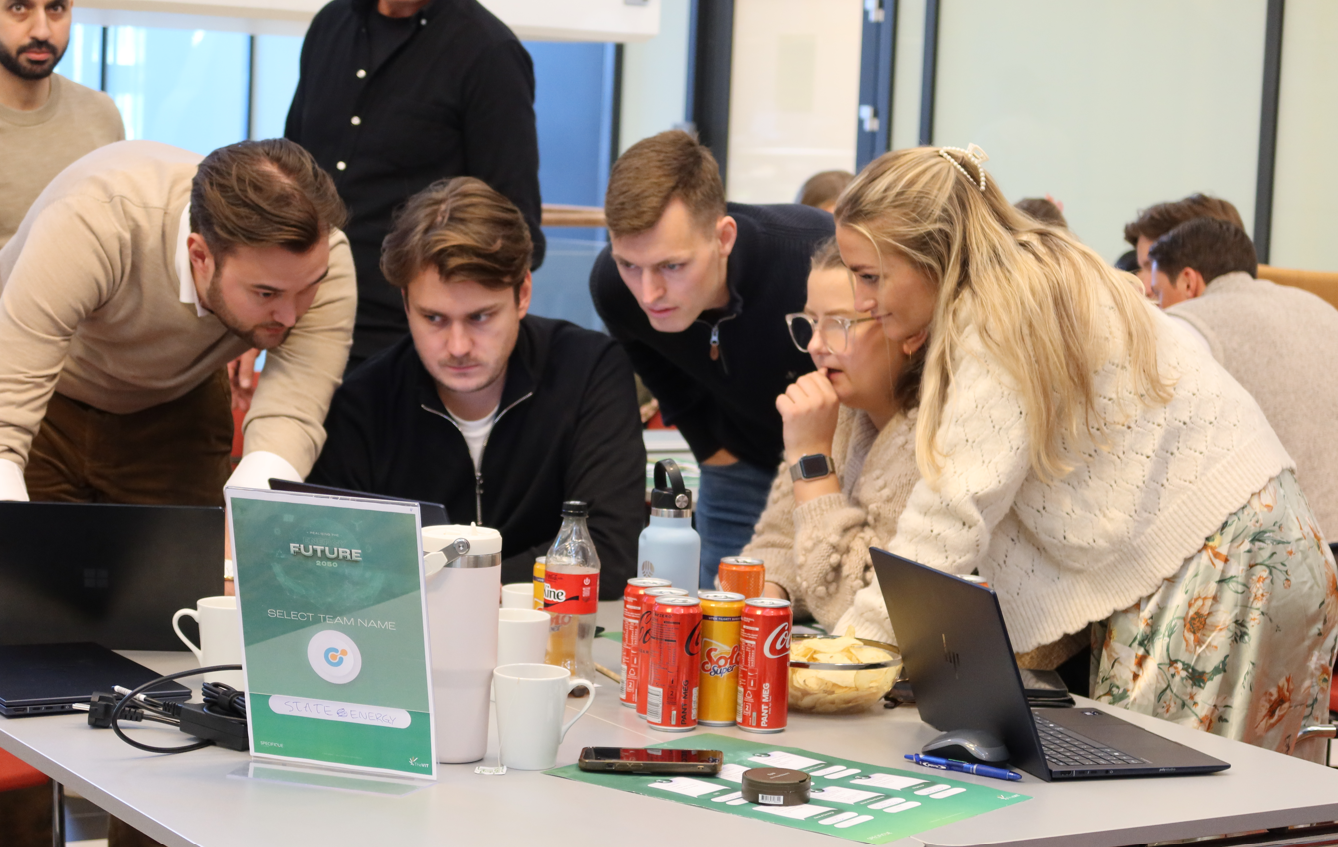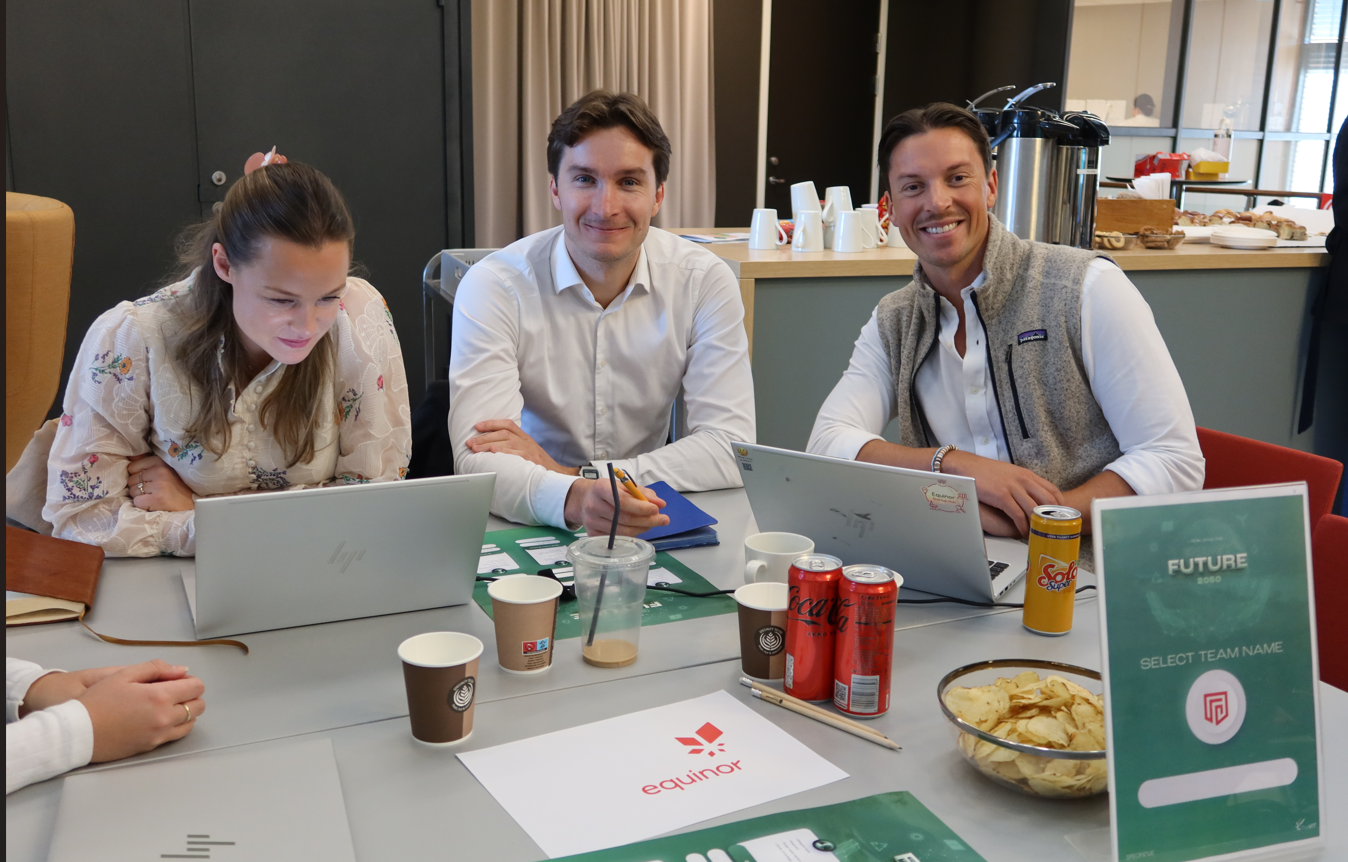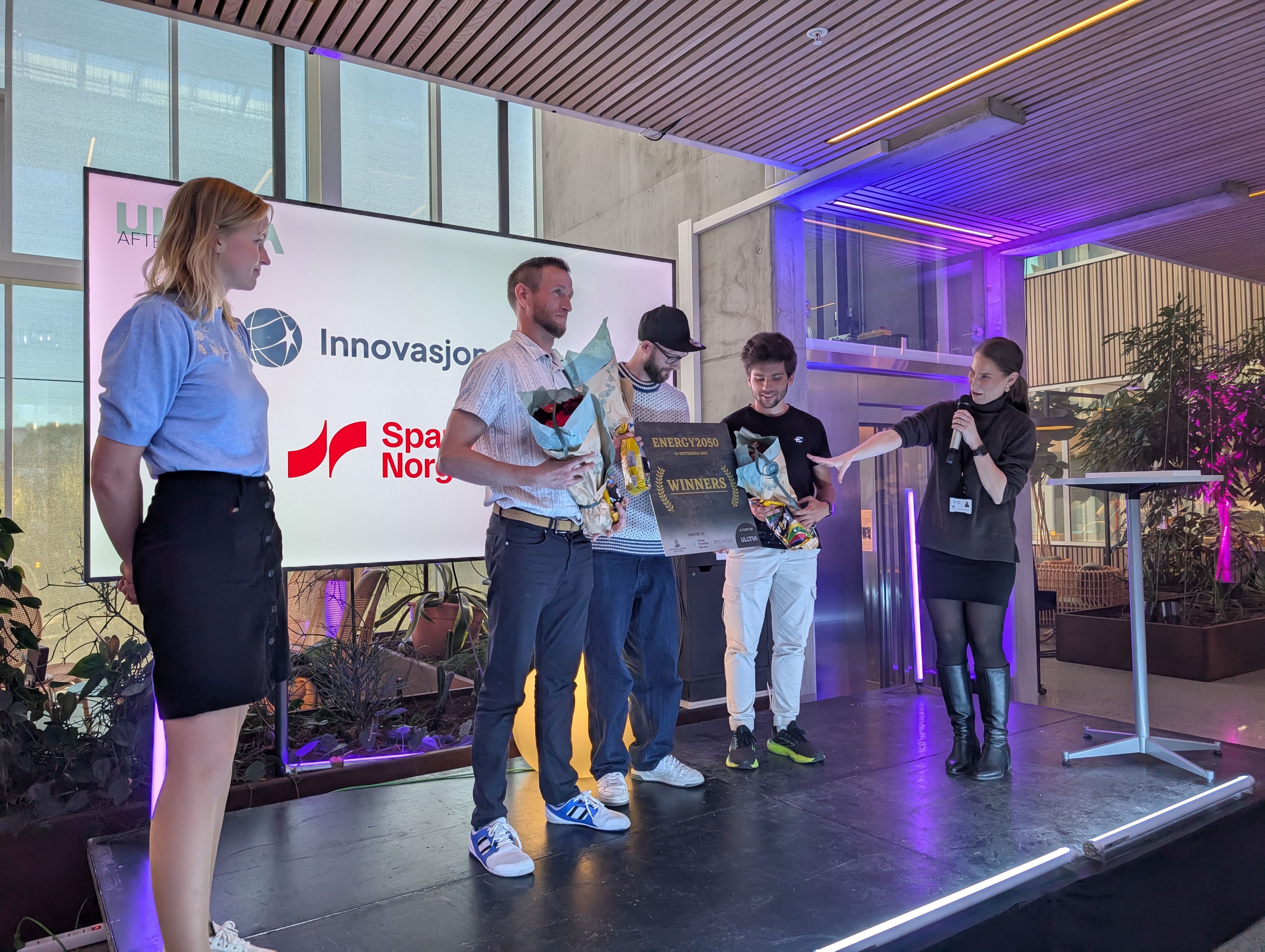Invitasjon til Energi2050 arbeidsmøter
Gi innspill til en ny, helhetlig FoUI-strategi for hele energiområdet i Norge.
ETN and Sokkeldirektoratet invited to 'educational' and 'hectic' experience during the ULLTRA festival


On September 26, the ULLTRA festival in Stavanger brought together students and young professionals for a unique challenge:
Energy2050, a business simulation game that pushes participants to navigate 25 years of market disruption, policy shifts, and technological change on the path to a sustainable energy future.
The game was hosted by Energy Transition Norway and Sokkeldirektoratet at Innovation Park Stavanger. From 1 pm to 5 pm, six teams representing five organizations and with three to eight participants per team; University of Stavanger (UiS), Vår Energi, Equinor, EY, and Sokkeldirektoratet, competed to steer the fictitious country of Exlandia through the turbulent energy transition.

Exlandia, the backdrop of the game, mirrors many real-world dilemmas: average GDP per capita, an economy on the rise, and abundant energy resources. But also sharp climate variations and frequent weather events.
Teams were tasked with building and managing diverse portfolios of energy assets while responding to shocks such as extreme weather, regulatory changes, and shifting stakeholder demands.
The challenge? To balance financial performance with environmental responsibility and national interests, all while adapting to rapidly changing conditions.


The game has been developed by Specifique in collaboration with Equinor over the last 12 years. It is designed to test crisis, risk, and stakeholder management skills under pressure, forcing participants to juggle investment decisions across oil and gas, wind, solar, hydrogen, hydro, and storage, while aligning business strategies with regulatory and operational realities.
– The experience was educational. And hectic! With lots of good learning points and a good dose of chaos, said Tamara Hansen from the Vår Energi-team.
– It was exciting to try something completely different from our usual work. What struck me most was how different the actual results turned out compared to what we expected from our strategy. It showed clearly that you can’t control everything.
After four intense hours, the winning team emerged: N-TEQ from the University of Stavanger, represented by Tomáš Motus, Elias Schermer, and David Slater. They succeeded in balancing economic, environmental, and reputational outcomes most effectively, securing victory in what was a tight competition.
The game concluded with an afterparty celebration, where the winners were awarded their well-deserved prize.
The Energy2050 ULLTRA edition was organized by Hege Anglevik (Energy Transition Norway) and Pia Winterkjær (Sokkeldirektoratet). The ULLTRA festival itself was led by Project Manager Helene Gram (Stavanger Municipality) with program responsibility held by Hilde Garlid (Validé).
